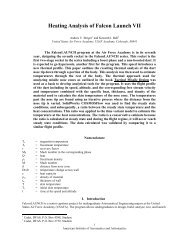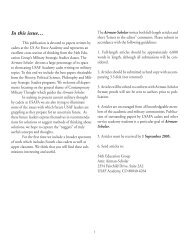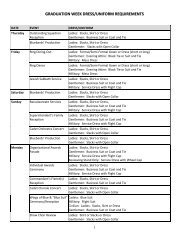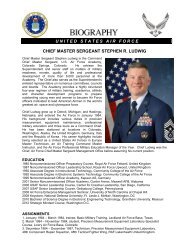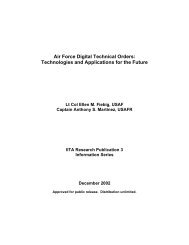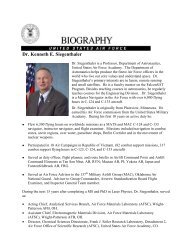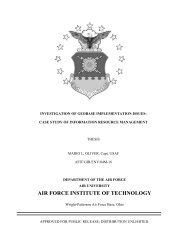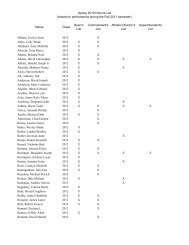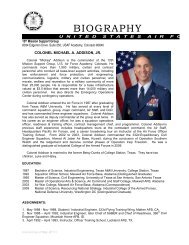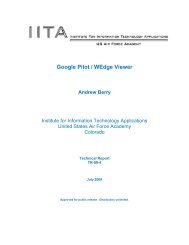the rollback of south africa's biological warfare program
the rollback of south africa's biological warfare program
the rollback of south africa's biological warfare program
You also want an ePaper? Increase the reach of your titles
YUMPU automatically turns print PDFs into web optimized ePapers that Google loves.
public. The State was operating on <strong>the</strong> assumption that <strong>the</strong> legal proceedings<br />
would remain closed to <strong>the</strong> public throughout much or all <strong>of</strong> <strong>the</strong> anticipated<br />
18-month criminal trial. This situation triggered a two-year legal effort by a<br />
non-governmental organization (NGO), <strong>the</strong> Freedom <strong>of</strong> Expression Institute<br />
(FIX), to make Basson's bail application open to <strong>the</strong> public. FIX filed a legal<br />
petition in 1997, after receiving a request from two newspapers, The Sunday<br />
Times and Mail & Guardian, to do something about <strong>the</strong> closed legal<br />
proceedings. FIX filed an application with <strong>the</strong> Magistrate Court as <strong>the</strong> sole<br />
plaintiff, because legal glitches precluded <strong>the</strong> two newspapers from filing as<br />
plaintiffs. 198<br />
The State's position was that <strong>the</strong> bail application contained information<br />
negative for South Africa’s foreign relations in three categories: 1) names <strong>of</strong><br />
individuals who had not been charged; 2) names <strong>of</strong> countries mentioned in <strong>the</strong><br />
bail application; and, 3) <strong>the</strong> names <strong>of</strong> local people involved in Basson’s<br />
business dealings. The Ministry <strong>of</strong> Justice insisted that <strong>the</strong> last category be<br />
kept secret, because to do o<strong>the</strong>rwise would compromise ongoing criminal<br />
investigations. A second argument used by <strong>the</strong> State was similar to those heard<br />
during earlier efforts to keep <strong>the</strong> TRC’s Project Coast hearings closed, to wit<br />
that information in <strong>the</strong> bail application would be in violation <strong>of</strong> <strong>the</strong> Non-<br />
Proliferation Treaty that South Africa had ratified and promised to uphold.<br />
NIA argued that classified information should not be released until it had gone<br />
through <strong>the</strong> normal declassification process.<br />
FIX countered that much <strong>of</strong> this information was no longer secret, since<br />
it had already been made public by <strong>the</strong> TRC. They also noted that several<br />
reporters already had full transcripts from <strong>the</strong> hearings and had used this<br />
information in published press reports. On <strong>the</strong> day that <strong>the</strong> Regional Magistrate<br />
<strong>of</strong> Pretoria heard <strong>the</strong> bail request, several reporters were in <strong>the</strong> court until <strong>the</strong><br />
Court went into camera session. FIX, now joined by several news<br />
organizations and an independent journalist, appealed to <strong>the</strong> Supreme Court.<br />
77




